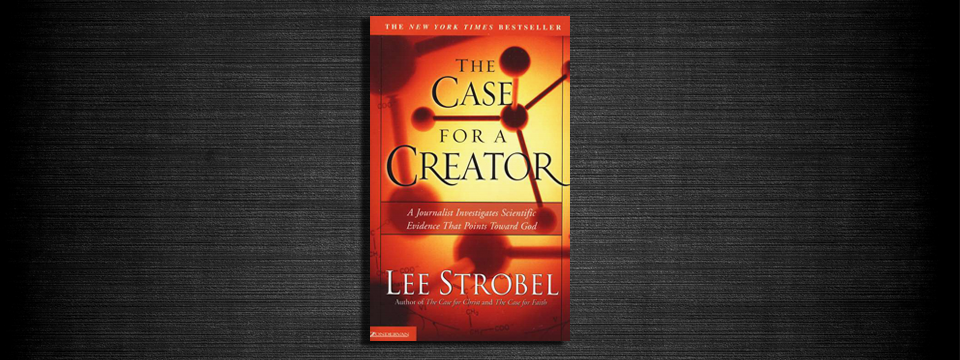
by Laura Wilcox | Jun 29, 2013
As swimsuit season is in full force, the gym becomes packed with people like me who haven’t seen a treadmill since 2012. Of course, as summer wears on, their blotchy, winded faces disappear one by one as they trickle out twice as quickly as they flooded in. This tidal flow of gym-goers reminds me of daily devotionals. During the school semester, when time was scarce and energy rare, I let myself slack on holding a quiet time. For me, it seemed like an all or nothing effort: either I was in the word every day pouring over scripture for hours or I called it a “day off.” I regarded the gym with this same black-and-white mentality, where it was either a two-hour, muscle-draining power session or a day of Oreo-munching on the couch.
There was only one problem. A rigid perspective like this will never align with the unpredictable nature of daily life. Additionally, when we approach our spiritual life like a chore, another check on the to-do list, we set ourselves up for the inevitable burnout. In Romans 7:22, Paul writes that “For in my inner being I delight in God’s law.” Chores are not typically delightful, so why should it be surprising when we do not derive joy reading God’s word when we equate it with doing the dishes? If our spiritual state links with motivation in this way, perhaps we should look at what makes a strong physique.
There are many similarities between a good spiritual and physical physique: both require frequent exercise, stimulating plans, and continuous effort. If we really want to be in the word (or the gym) daily, we cannot set unrealistic expectations for ourselves. We may have only 10 minutes to spare one day, and that’s okay. We may have an hour to give another day, and that’s okay. We may skip one or two days altogether, and that’s okay.
1 Chronicles 16:11 says, “Seek the Lord and his strength; seek his presence continually.” If we are going to seek Him continually and delight in His word, we must pace ourselves like an athlete. A brief spiritual workout is better than no workout at all, and daily devotionals provide the long-term strength a weekly or monthly binge spiritual session cannot. I’m not saying I have it figured out or that I’m great at consistently holding a quiet time, because I’m not. I’m saying that to get in better shape, we need to ditch the idea of being a spiritual gym rat.

by Laura Wilcox | May 9, 2013
Back in middle school, I was a definitely what you would call a “band nerd.” Every day, I would loiter with my clarinet buddies in the office of our band director, Mary Jo Sharp, for hours. Over the course of my middle school career, my friends and I grew extremely close to our director, who would chat with us daily after school about anything we cared to discuss. Needless to say, she was the kind of teacher who always poured genuine concern into the lives of her students, a real example of Christ’s love.
It was no secret that Mrs. Sharp was a Christian, but when she resigned my freshmen year of high school to follow God’s calling into apologetics (the defense of faith,) all of her students were shocked. She returned to the University of Oklahoma, where she had received her bachelor’s degree in music education, and pursued a master’s degree in apologetics. Shortly thereafter, she began appearing on Christian radio shows, in Baptist publications, and on Internet podcasts with regular frequency as part of Confident Christianity. Before long, she wrote her first devotional, Defending the Faith, and was eventually offered a teaching position at Houston Baptist University, where she now serves as an Assistant Professor of Apologetics.
Often times, when I flip to the last page of a devotional to read about the author, I cannot help but wonder if these spiritual leaders truly adhere to the principles they teach. When I see Mary Jo Sharp’s name on the bottom of Defending the Faith, however, I recall the countless instances of Godly love where she patiently listened to the frivolous, daily worries of her middle school students, always equipped with kind words and Biblically-centered advice. It goes without saying that Mrs. Sharp greatly influenced the early stages of my walk with Christ and continues to do so now through her work with apologetics.
In college, your beliefs are tested daily as new ideas are thrown at you from every direction, which can unfortunately plants seeds of doubt in the back of any lifelong Christian’s mind. This is why I have taken a recent interest in Mary Jo’s work, as a proactive response to the doubts that are inevitable to the Christian faith. Although I have only begun to work through her devotional, I can connect to the honesty with which she discusses her doubts, personal spiritual struggles, and pursuit of hard answers through apologetics. Even though it has been seven years since I was her student, God is still using Mary Jo to meet my spiritual needs. Isn’t that amazing?
If you are looking to test the waters of apologetics or are in need of a new devotional, I would love to invite you to work through Defending the Faith with me. You can purchase the book either online, at Amazon, or at most Mardel stores. When I step back and observe the big picture of God’s plan for Mary Jo in my life, my trust in him is only renewed. It then leads me to a larger question: Am I allowing God to work through me in the lives of others? Are you? It’s funny how reflecting on the past, on the mentors that prayed and cared for us, can heavily influence our own future as a strategically-placed puzzle piece in God’s great plan.

by Laura Wilcox | Feb 19, 2013
Many readers have heard of Lee Strobel’s popular apologetics book The Case for Christ, but not everyone is familiar with its predecessor, The Case for a Creator. In this book, Strobel travels across the United States interviewing some of the country’s most esteemed professors from a wide range of prestigious universities, both Christian and public. By collecting the proofs from experts across the board, Strobel pieces together the scientific proof that today’s most widely accepted theories on the Earth’s origin cannot work in tandem without a divine creator.
Strobel was not always interested in apologetics. He received a journalism degree from the University of Missouri and a Master in Law Studies from Yale University. Strobel then pursued a successful career at the Chicago Tribune where he worked as an investigative reporter. Strobel, a firm atheist at the time, began an investigative study on the scientific and historical proof of Christianity after a debate with his wife, a devout Christian. Strobel’s investigation led to his conversion of faith and several books, four of which have received the ECPA Christian Book Award.
One of the things I value most in Strobel’s writing is straightforward approach. Many of the experts Strobel interviews explain their work in field-specific jargon, and Strobel does not water down these theories. I find this to be the most honorable quality of the book as it lends credibility of his interviews and allows me to dive into the research for myself without being told the conclusion in elementary terms. The Case for a Creator also presents an appreciated diversity of interviews. Strobel speaks with Christian, atheist, and agnostic professors in capturing an objective collection of scientific proofs that do not blatantly align with a particular agenda. As a college student, I am all too aware of the hidden bias professors often have and find Strobel’s source diversity a refreshing point of credibility.
While I respect Strobel for not dumbing down the theories he presents, I think his case could be stronger if he expanded more on the implications of the scientific data he collects. If you are not a molecular biologist, astrophysicist, or theoretical physicist, many of the professor’s explanations will go over your head. Strobel does an excellent job of presenting expert theories and highlighting conclusions but fails to link the two in a way that general audiences will understand.
Although Strobel’s book is at times difficult to digest, I would recommend it to anyone who is interested in dabbling with apologetics. I would especially suggest this novel to college students, as it relies on a collegiate-styled research method that will be familiar. His sources are credible and objective, which lend to his airtight argument for a creator. While the book may require outside research on the part of the reader to better understand some of the more complex theories he mentions, it is well worth the time in providing a solid foundation for Christianity’s Case for a Creator.


